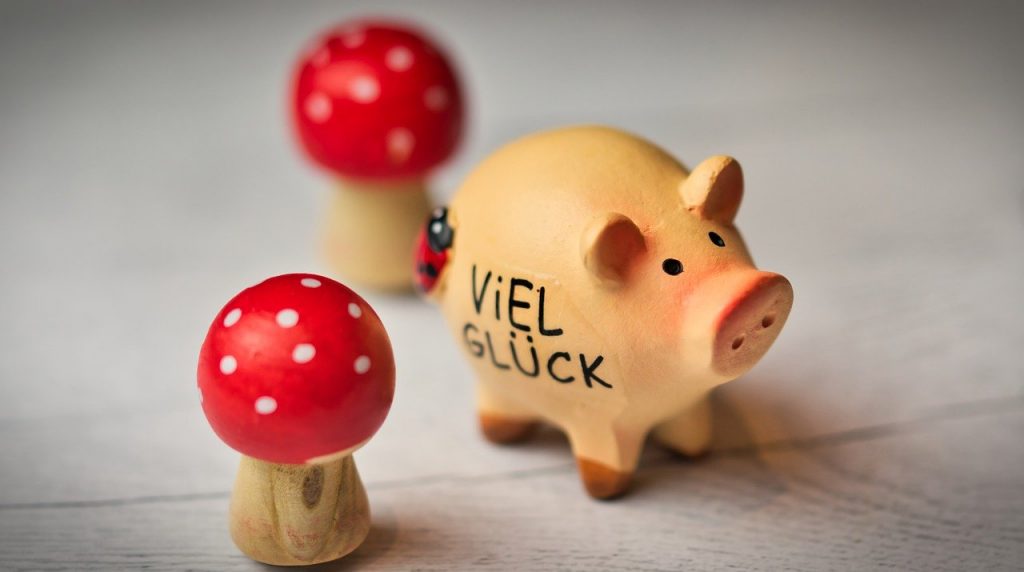The German Word ‘Glück’: Happiness Or Luck? Posted by Constanze on Mar 25, 2020 in Language
Guten Tag! Recently I’ve been talking about das Glück (luck) on the blog, and I wanted to address something that could be confusing about this word.
If you studied German in school, one of the first adjectives you probably learnt was the word for happy – glücklich.
Ich bin glücklich – I am happy
Ich bin traurig – I am sad
Ich bin müde – I am tired
And so on.
If this is the case, you probably accepted from then on that to be glücklich is to be happy, and das Glück means happiness. And this is true- but what you might not have learnt is that das Glück is also the word for luck.
So how do you know whether it’s luck or happiness that’s being spoken about?
If you say a person is glücklich, it means they are happy.
You cannot say a person is lucky (‘ist glücklich‘) in German. If you say ‘Sie ist glücklich’, this means ‘She is happy’. It doesn’t mean ‘She is lucky’.
So how do you say in German that someone – or something – is lucky?
The trick is that, when talking about luck, you don’t use the verb sein (to be), but the verb haben (to have). In German, a person has luck.
Sie hat Glück.
She’s lucky/she’s in luck.Da hast du Glück gehabt!
Wow, you were lucky!
Another reason this can confuse is because the words happiness and luck are relatively close in meaning, and when people talk about being lucky they are usually also happy, or talking about happiness. Take these sentences, for instance:
Ich bin glücklich, dass ich hier wohnen kann.
I am happy I can live here.
Ich habe Glück, dass ich hier wohnen kann.
I am lucky I can live here.
Both of these sentences might be said about the same situation (getting to live in a certain place). The person might feel incredibly lucky to live there, which in turn makes them incredibly happy. But can you tell the difference between the use of glücklich sein (to be happy) and Glück haben (to have luck) in them?
If you’re ever stuck on this, just remember the following table:
glücklich sein = to be happy
Glück haben = to be lucky (‘have luck’)
This sentence is also a good example of how the two versions of Glück work:
Er hat im Leben viel Glück gehabt, und ist doch niemals glücklich gewesen.
He’d had a lot of luck in life, but had never been happy.
I hope this has been of some help!
To finish, see if you can decipher from these sentences whether they are talking about happiness, or luck:
- Ich bin so glücklich, dass du hier bist
- Er hat aber Glück gehabt
- Sie sind alle so glücklich
- Glücklich ist, wer vergisst, was nicht mehr zu ändern ist
Bis bald!

Build vocabulary, practice pronunciation, and more with Transparent Language Online. Available anytime, anywhere, on any device.





